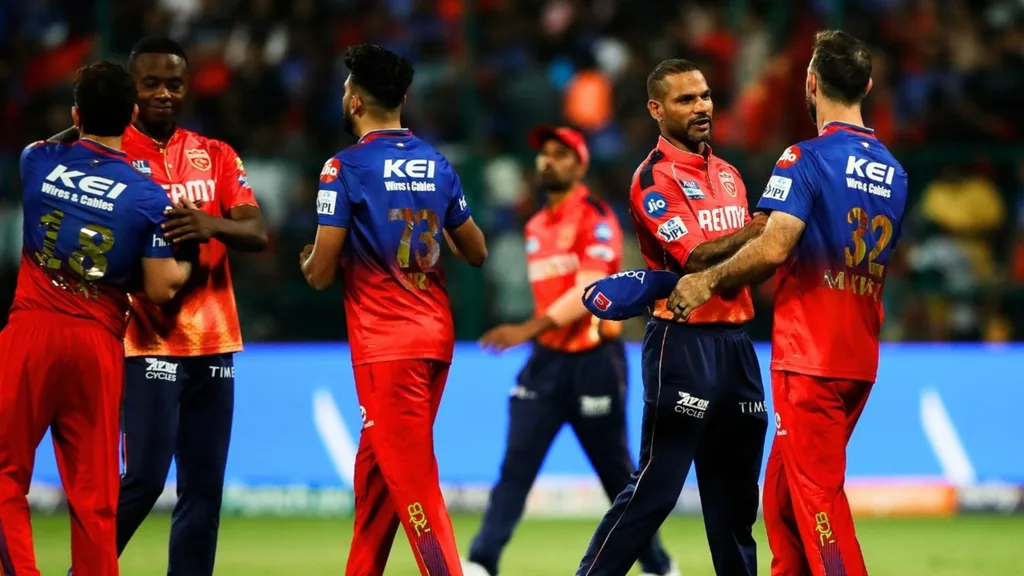
The Role of Umpires and Referees in Ensuring Fair Play in IPL
Umpires and referees play crucial roles in ensuring fair play and upholding the integrity of the game in the Indian Premier League (IPL). Here’s an elaboration on their roles and responsibilities:
Stewards of the Rules – Making Crucial Calls:
- Dismissal Decisions: The buck stops with the umpire when it comes to adjudicating dismissals. They have the final say on LBWs (Leg Before Wicket), a complex judgment involving the trajectory of the T20 betting, the batsman’s positioning, and the potential to hit the wicket. Similar pressure decisions include catches, run-outs, and stumpings, all requiring split-second analysis and a clear signal.
- On-Field Incidents: Beyond dismissals, umpires are responsible for calling no-balls (deliveries exceeding the legal bowling height) and wides (deliveries too far outside the batsman’s reach to be played comfortably). These decisions can significantly impact the game’s flow and scoring opportunities.
Ensuring a Level Playing Field – Champions of Fair Play:
- Maintaining Cricketing Spirit: Upholding the spirit of cricket is paramount. Umpires monitor player conduct, intervene in situations of dissent or aggression towards opposing players or the umpire themselves. They can penalize players by docking runs or even sending them off the field for serious offenses.
- Interpreting the Laws: The Laws of Cricket are the guiding principles of the game. Umpires act as interpreters, making judgments on borderline cases and ensuring both teams play within the established rules. This includes monitoring for illegal fielding placements or bowlers overstepping the crease.
Clear Communication – Signals Speak Louder Than Words:
- A Universal Language: Umpires rely on a well-defined set of hand signals to communicate their decisions to everyone on the field. These signals are standardized and understood by players, scorers, and spectators alike. A clear raised finger signifies a batsman out, while an arm extended outward signals a wide delivery.
- Transparency and Consistency: Universal hand signals ensure transparency in umpiring decisions. They allow players to understand the reason for their dismissal and the spectators to follow the flow of the match. Consistency in applying these signals throughout the match is crucial for maintaining fairness.
The Challenge and the Pressure:
Being an umpire, especially in a high-octane tournament like the IPL, requires exceptional skills and nerves of steel. They need to make split-second decisions under immense pressure from players, fans, and the media scrutiny that comes with the IPL. Despite these challenges, on-field umpires play an indispensable role in safeguarding the integrity and fair play that are the cornerstones of cricket.
The Game Changer: The Third Umpire and DRS
The IPL utilizes the revolutionary Decision Review System (DRS), and the third umpire plays a pivotal role in its effective functioning. Here’s how this technology-aided system works:
- Challenging Umpire’s Calls: When a team disagrees with an on-field umpire’s call, they can utilize their DRS quota (usually a limited number of reviews per innings) to challenge the decision.
- Scrutiny in the Booth: The third umpire, stationed in a dedicated off-field review room, has access to multiple high-definition replays from various angles. They meticulously analyze the footage to determine if there’s enough evidence to overturn the on-field umpire’s call.
- Technology as an Ally: Advanced Indibet app technology like Hawk-Eye (for LBW decisions) and ball-tracking (for caught behind decisions) plays a crucial role in assisting the third umpire. This technology helps visualize the trajectory of the ball and potential impact on the wicket, providing valuable insights for a more informed decision.
The Quest for Fairness:
- Neutral Arbiter: The third umpire acts as an impartial judge during the DRS process. Their primary responsibility is to ensure fairness and accuracy in decision-making. They analyze the replays objectively, independent of any pressure from teams or the crowd.
- Overturning Injustice: DRS empowers the third umpire to rectify genuine errors made by the on-field umpires. This can be particularly significant in close calls like LBW decisions where the naked eye might struggle to determine if the ball hit the wicket or the pad first. By utilizing technology effectively, the third umpire helps uphold the spirit of fair play and ensures the correct team is rewarded.
However, it’s important to remember that:
- DRS is Not Foolproof: Even with technology, some decisions might remain inconclusive due to limitations in ball-tracking or the difficulty of definitively judging close shaves. The third umpire’s final call, based on the available evidence, is the ultimate verdict.
- The Human Element Endures: While technology plays a significant role, the third umpire’s experience, judgment, and ability to interpret the replays accurately are still crucial factors in the DRS process.
Match Referee:
- Pre-match responsibilities: The match referee oversees pre-match preparations, including pitch inspection, player conduct briefings, and ensuring compliance with match regulations.
- Conduct enforcement: During the match, the match referee monitors player behavior, team conduct, and adherence to IPL’s Code of Conduct. They have the authority to impose penalties, fines, or suspensions for breaches of conduct, including sports betting exchange instances of dissent, misconduct, or unsporting behavior.
- Post-match duties: After the match, the match referee reviews any reported incidents, assesses disciplinary actions, and submits match reports to IPL authorities for further review and action if necessary.
- Integrity Oversight:
-
- Anti-corruption measures: Umpires and match officials are vigilant in detecting and reporting any signs of corruption, such as match-fixing or spot-fixing, to the IPL’s Anti-Corruption Unit (ACU).
- Integrity education: IPL officials, including umpires and referees, undergo regular integrity education and training sessions to stay updated on the latest anti-corruption protocols and to recognize potential threats to the integrity of the game.
Overall, umpires and referees in the IPL uphold the principles of fair play, integrity, and sportsmanship, ensuring that matches are conducted in a spirit of fairness and competitiveness while maintaining the highest standards of cricketing ethics. Their presence and oversight contribute significantly to the credibility and reputation of the IPL as a premier cricketing tournament.
